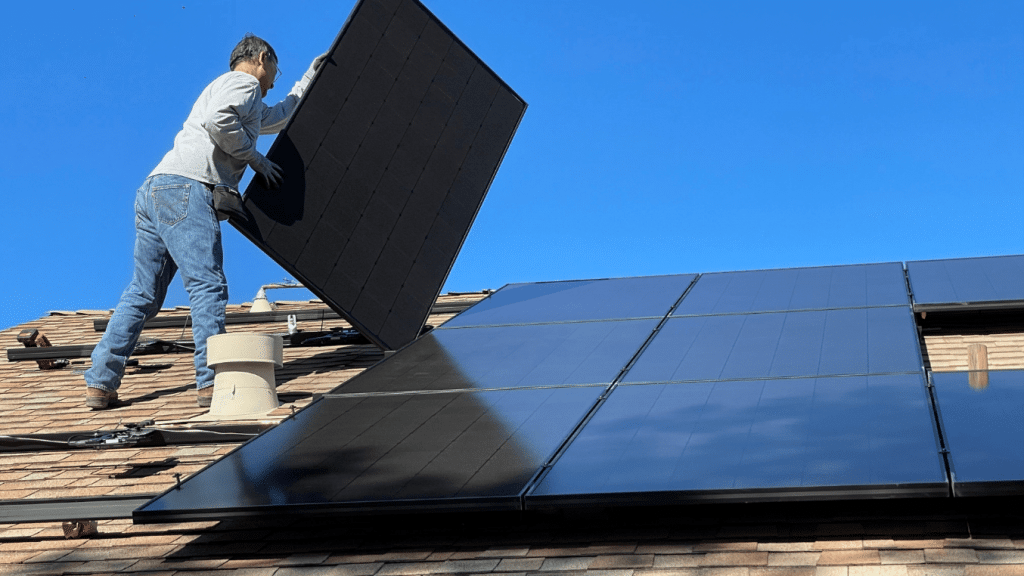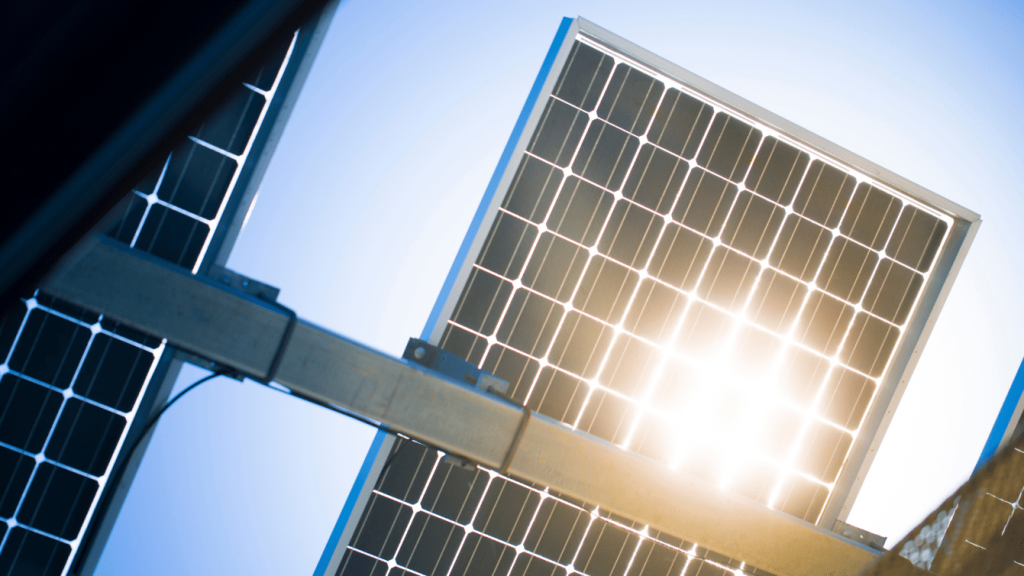
It is often assumed that the more sun and heat solar panels are exposed to will result in greater energy production. But are high temperatures good for solar panels? The short answer is no.
Solar PV systems lose efficiency as the temperature rises and do not function at their optimal level in hotter climates. The efficiency of a solar PV system is regulated based on the amount of sunlight they get and not by temperature. Essentially, heat can compromise a solar panel’s power production.
Solar panels can endure high temperatures. Solar manufacturers design and build panels to withstand temperatures up to 85 degrees Celsius. While they were manufactured to be able to continue to operate at this temperature, they will not operate efficiently nor produce the expected energy.
Essentially, solar panels generate less electricity at high temperatures. They perform poorly at converting sunlight into electricity when they’re hot. In worst cases, prolonged exposure to such a climate may damage your solar panels.
How Heat Affects Solar Panels Efficiency

Solar panels are made up of individual solar cells that can convert sunlight into electricity. The solar cells are usually made of silicon, a material found in sand. When sunlight hits the silicon solar cell, it causes the electrons in the silicon to move around.
But in higher temperatures, the hotter the solar PV becomes, the moving of electrons increases. Thus, reducing the panel’s efficiency, as well as the voltage. High temperatures boost the circuits’ electrical resistance that converts the PV charge into AC electricity. Going for a modern solar panel may be a good idea as they suffer less from extensive heat. However, these modern hybrid panels can still lose around 10% of their efficiency in maximum heat.
How to Determine Your Solar Panel’s Tolerance to Heat?
The manufacturer’s datasheet identifies your solar PV system’s tolerance to high temperatures. In this sheet, you can find the “temperature coefficient (Pmax),” describing how much power the panel loses when the temperature increases 1°C above 25°C.
How to Reduce the Effects of Heat
As much as you want to keep your panels performing at their best, high temperatures are beyond your control. There are ways you can minimize the harmful effects of surging temperatures. Take a look at the examples below:
Implement Proper Installation Practices
You can minimize the effects of heat on your PV system by following good installation practices. For panel-level micro-inverters, giving ample space underneath the panels allow for a much better airflow. Underneath these panels are microcomputers with sensitive circuity that are very much susceptible to high temperatures.
You can go for traditional string inverter configurations if you live in hotter climates. You may position combiners and inverters in shaded areas to reduce tear and wear from direct sun exposure and extreme heat.
Angle Your Panels
To keep your best angle for solar panels Melbourne functioning at their best for a long time, you must take steps to protect them during a heat wave. Ensure that your panels are not under direct sunlight for a long period of time. If you can, angle your panels to secure them, obtaining direct sunlight during the hottest part of the day.
Choose The Best Solar Panels
Choosing a reputable brand and panels is one significant factor when considering a solar PV system. You must select the right type of panel that can function consistently in Australia’s climate. It is necessary to choose the right panels as the heat your PV system is built to pick up will depend on your panels’ temperature coefficient. Solar panels deliver various efficiency ratings that will identify how they perform in challenging climates.
Coordinate With A Reputable Solar Provider
Homeowners in Australia who are thinking of going solar must take the time to find a trusted and quality solar team. A quality team offers a variety of services, such as giving fair quotes and excellent customer support. They must be able to answer any of your solar-related queries and concerns.
When coordinating with a solar team, it is vital to ask for recommendations and do your own background research. You can finally make a sound investment by searching for a trusted and effective solar provider.

Energy Matters has done the hard work for you! We have compiled a network of local and trusted installers with the experience to install the right system for you and your home/business. You can get up to 3 FREE, no-obligation quotes by completing our quick survey.












































